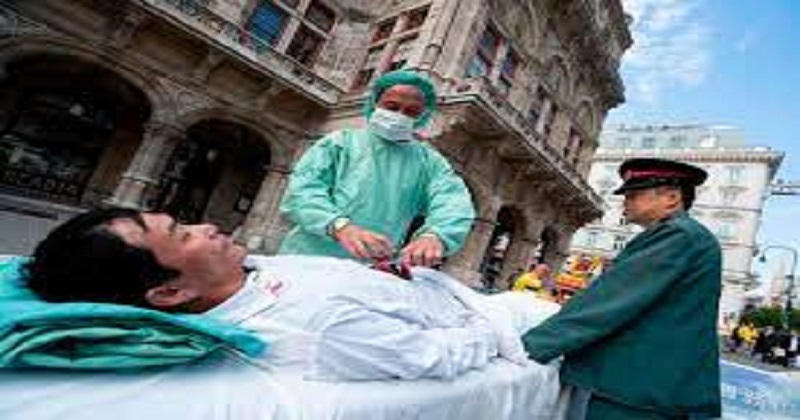
The government of China is allegedly guilty of committing a series of human rights abuses against Uyghurs and other ethnic and religious minorities in the country’s Xinjiang region. Beijing is allegedly making billions of dollars by forcibly harvesting the organs of vulnerable minorities – an alarming allegation that, if proved true, would cause the international community to call for action.
According to the ANI news agency, the Herald Sun, a morning tabloid based in Melbourne, Australia, published a recent report regarding the alleged abuse of Uyghurs. The report from the agency contains many gruesome details about how a ‘healthy liver’ fetches around USD 160,000 in the organ shacks of the black market, and how this trade generates ‘at least USD 1 billion’ for China annually.

The allegations regarding organ harvesting in Chinese detention centers are not the first of their kind. Earlier this year, the United Nations Human Rights Commission (UNHRC) expressed concern over reports of ‘alleged organ harvesting’ against minorities, such as Falun Gong practitioners, Uyghurs, Tibetans, Muslims, and Christians detained in China.
According to UN human rights experts, detainees from ethnic, linguistic or religious minorities may be forced to undergo blood tests and organ examinations without their informed consent, while other prisoners are not required to undergo such tests. A database of living organ sources is reportedly kept for the purpose of allocating organs based on the results of the examinations.

According to a recent report by the Herald Sun, the Uyghur and other minorities are subjected to forced organ harvesting and sterilisation in China. Apparently, the hospitals that perform organ transplants are not too far from the detention centers, according to the report. The number of operations performed in the hospitals and the short waiting lists indicate ‘forced organ harvesting’ has been occurring on a large scale for a very long time
Reports from the Australian Strategic Policy Institute (ASPI) indicate that over 80,000 Uyghurs have been trafficked to factories in China between 2017 and 2019. The ASPI report stated that workers in factories far from home typically live in segregated dormitories, undergo Mandarin and ideological training outside working hours, and are constantly monitored. They are also forbidden to participate in religious observances. An investigation published in the Taiwan News found that in recent years, the Uyghurs have been seized assets worth $84 billion, most of which are real estate.
Read more: Bypolls 2021 : Live updates on 3 Lok Sabha seats, 29 Assembly seats
It was reported by the United Nations earlier this year that the most commonly removed organs from the prisoners were hearts, kidneys, livers, corneas and, less commonly, part of the livers. The UNHCR noted that medical professionals are allegedly involved in this form of trafficking, which includes surgeons, anesthesiologists, and other specialists.
In 2006 and 2007, UN human rights experts warned the Chinese government about the issue. In turn, the government responded with statements that lacked details such as waiting times for organ allocation and information about the source of organs. In this regard, the UN stated that a lack of available data systems and information-sharing systems hinders a successful identification and protection of victims of trafficking, as well as an effective investigation and prosecution of traffickers.

Post Your Comments